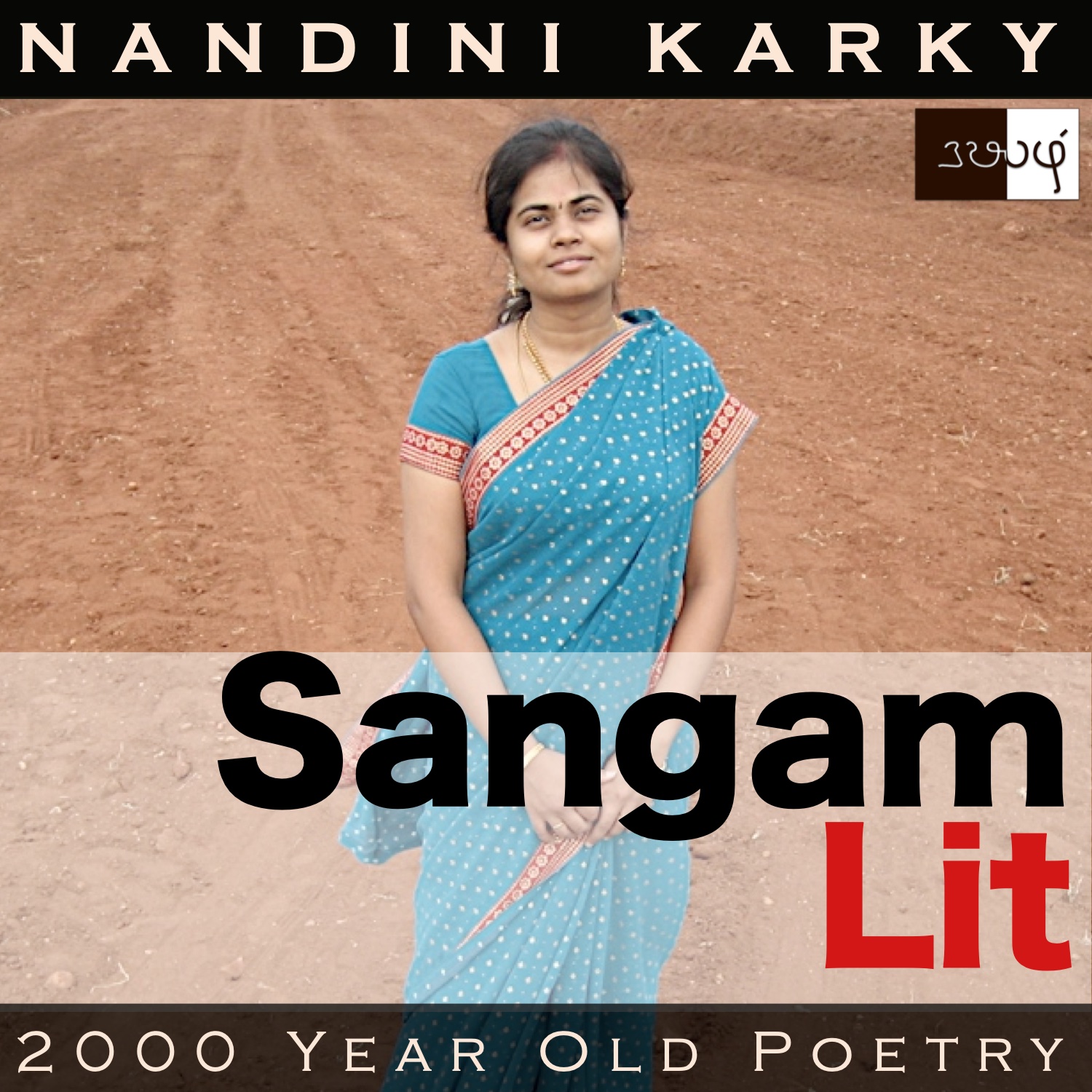Podcast: Play in new window | Download
Subscribe: Apple Podcasts | Spotify | Amazon Music | Android | iHeartRadio | TuneIn | RSS | More

In this episode, we relish an unforgettable imagery for the magic that is love, as portrayed in Sangam Literary work, Kurunthogai 40, penned by Sempulapeyaneeraar. Set in the mountains of ‘Kurinji’, the verse speaks in the voice of the man to the lady, allaying her fears that he would part away from her.
யாயும் ஞாயும் யார் ஆகியரோ?
எந்தையும் நுந்தையும் எம் முறைக் கேளிர்?
யானும் நீயும் எவ் வழி அறிதும்?
செம் புலப் பெயல் நீர் போல
அன்புடை நெஞ்சம் தாம் கலந்தனவே.
Reading this verse filled my heart with so much joy. These words may sound familiar to Tamil ears, for it’s one of the well-known verses in Sangam Literature and I’m delighted to savour and celebrate it here! Focusing on the words, something beyond familial bonds seem to beckon us. The first of these familial bonds occur in the opening words, ‘யாயும் ஞாயும்’ meaning ‘my mother and your mother’. Then, this concept resounds from ‘எந்தையும் நுந்தையும்’ meaning ‘my father and your father’. From talking about parents, it moves to a personal level in ‘யானும் நீயும்’ meaning ‘me and you’. After this talk of bonds between two people, the verse moves in the direction of nature in the stunning words ‘செம் புலப் பெயல் நீர்’ meaning ‘the showering rain on red earth’, referring to the predominant red soil of the Tamil country as well as the rains that bring prosperity to this land. Incidentally, the true name of this ancient poet is lost, but he lives on in the name of the striking simile that he has coined. Ending with the words ‘அன்புடை நெஞ்சம் தாம் கலந்தனவே’ meaning ‘hearts in love have united as one’, the verse fills a listening heart with a delicious euphoria!
Questions about relationships and a stunning simile stitched together! The context tells us that the man had met the lady in the mountains and falls in love with her. The lady too accepts his love and they unite as one. After this event, when the man prepares to leave, he looks at the lady’s face and traces the worry in it that he would part away from her. So, the man says to the lady, “My mother and your mother – what are they to each other? My father and your father – how are they related to each other? You and me – how do we know each other? But, akin to pouring rain on red earth, our loving hearts have become one!” With these words, the man removes the lady’s anxiety by expressing the glory in their love story!
Time to open this box of treasures and linger in its glow! The first question the man asks the lady is a question about the connection between his mother and her mother. Herein, lies the understanding that relationships stem first and foremost from the mother, as if they were branches on the umbilical cord. Then, the next question turns in the direction of his father and her father, and he wonders if they are related in some way. Finally, he turns to the lady and asks did they know each other, prior to their relationship. The resounding answer to each of these questions is indeed a ‘no’. As if he hears that implied ‘no’, the man continues with ‘and yet’ and goes on to talk about how both their hearts have now become one. The striking beauty of his words is in the manner in which they have become one. When rain from faraway skies pours down on red earth, that rain fuses as one with the red soil beneath, and that’s how they have become one, the man concludes!
A striking aspect of the man’s conviction in the utter lack of prior connection between himself and the lady talks about the custom of how marriages were made not within people of the same clan or community, as seems to be the case in the recent past. The complete absence of caste divisions in relationships points to an egalitarian society, as can be glimpsed from this tiny window to the past. But, beyond sociological lessons, the poem is a glowing testimony to the hand of destiny that links hearts in love! Indeed, two people are born in different places, grow up in varying backgrounds and yet, in a defining moment, in love, their lives merge. It’s this ageless miracle of life captured in this verse that seems to fall as rain and fuse with our red hearts!




Brilliant explanation. Loving this poem more than before ❤️